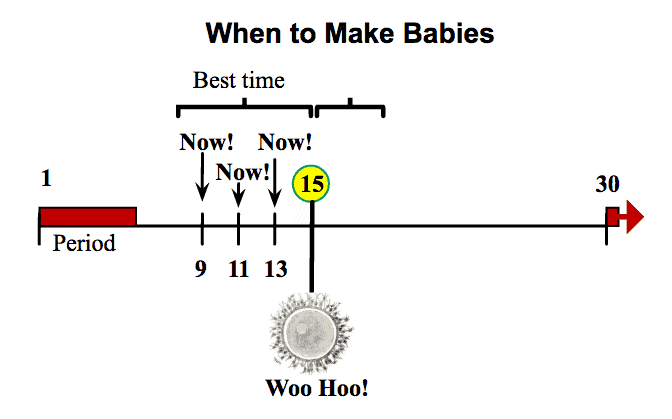Non-Surgical Male Infertility in Los Angeles & San Francisco, CA

When men first visit The Turek Clinic for infertility treatment, many assume that they are going to need a surgical procedure to have any chance of conceiving a child. In reality, many of these patients can achieve their goals of becoming a father without requiring invasive procedures at all. Approximately 75% of male infertility patients have underlying problems that, once diagnosed, can be treated without surgery.
Dr. Paul Turek is a renowned urologist and one of the U.S.’s foremost infertility specialists. His track record for achieving pregnancies is why so many couples turn to Dr. Turek for assistance. These patients appreciate that he goes through an exhaustive list of options to improve the odds of natural conception before recommending a surgery.
“What’s top of mind for me when evaluating men for infertility is to ensure that there is no underlying medical problem as a cause of the infertility.”
– Dr. Paul Turek
Male Infertility Causes and Solutions
Here, Dr. Turek reviews some of the best non-surgical male infertility treatments that have helped patients to avoid the often long and costly process of assisted reproduction. All his suggestions are based on research and sound medical principles.
Intercourse-Related Issues

Only about 20% of young men know the exact time to have sex during the female cycle to achieve a pregnancy. The critical period can be assessed by either basal body temperature charting or home kits that detect the LH surge in the urine 24-36 hours prior to ovulation. Since sperm reside in the cervical mucus for 48 hours and are released continuously, it is not necessary that sex and ovulation occur at the exact same time. Dr. Turek provides couples with the tools necessary to chart this information.
Another issue that confounds many couples is how often they should have sex to conceive. Ideally, ejaculation should occur frequently enough to bracket the ovulatory period. Dr. Turek recommends having sex every other day around the ovulatory period. . Recent evidence also suggests that most couples become pregnant from intercourse before ovulation rather than after ovulation. Furthermore, the level of sexual stimulation prior to ejaculation is important to the quality of ejaculation; the more the better.
Medications and Toxins
Although most medications are tested extensively for their potential reproductive hazards, Dr. Turek recommends that men who are having difficulty conceiving discontinue any unnecessary medications for the duration of their fertility journey. Obviously, this suggestion only applies to medications that can be safely stopped.
Medications that can make it more difficult for a man to fertilize an egg include:
Lubricants should also be avoided: Surgilube, K-Y jelly and saliva may contain antiseptics that hurt sperm. If lubrication is necessary during sex, go to the kitchen for help: vegetable oils such as olive oil appear to be the safest choices.
Other toxins known to harm sperm include heat exposure from saunas, hot tubs or baths, cigarettes, cocaine and alcohol. Marijuana can also lead to lower sperm counts and motility as well as impaired sperm performance.
Hormonal Infertility Treatment – Specific
Hyperprolactinemia
Prolactin is a hormone released by the pituitary gland in the brain. While prolactin is known to aid in breast development and lactation in women, its role for men remains unclear. Many experts suspect that prolactin can help keep testosterone levels high in the testis. It may also help the growth and secretions of the sex glands. Normal prolactin levels are important for normal sex drive and fertility as well.
Hyperprolactinemia occurs when prolactin production exceeds normal levels. This medical condition can be treated. However, elevated prolactin levels may also be the result of stress during the blood draw, obtaining the blood test too soon after awakening (since prolactin levels are elevated during sleep), illness in the body and various medications.
Hypothyroidism
Both high and low levels of thyroid hormone can affect sperm production. Thyroid disorders are known to decrease the density and volume of sperm acting mainly through alterations in hormone signalling to the testicle. Consequently, this can lead to infertility issues. While thyroid issues account for less than 0.5% of infertility cases, the good news is that they are very treatable. However, because it is rarely the cause of infertility, routine thyroid screening is not recommended for most infertility patients.
Congenital Adrenal Hyperplasia (CAH)
CAH describes a genetic disorder that affects the adrenal glands, which are located just above the kidneys and produce cortisol, the body’s stress hormone. Many patients with CAH are deficient in cortisol and the 21-hydroxylase enzyme. Consequently, the body produces excess androgens, a male sex hormone. This causes fertility issues for both men and women.
For men specifically, CAH can prevent the testes from maturing. This diagnosis is rare and classically presents as early puberty, which makes careful laboratory evaluation essential. Fortunately, the condition and the related infertility issues can be successfully treated with corticosteroids.
Testosterone Problems
There are conditions such as Kallman Syndrome where abnormal hormone signaling in the brain leads to low or non-existent testosterone levels. Infertility associated with these conditions can be effectively treated by replacing pituitary hormones.
Anabolic steroids, commonly taken by college and professional athletes, impair sperm production and shrinks the testicles. Even short term use can lead to zero sperm counts in men. Fortunately, discontinuing steroids usually reverses these problems.
Other Specific Medical Treatments
Leukocytospermia
Pyospermia (or leukocytospermia) describes an elevated white blood cell count in semen (>1 million/mL). It is linked with:
- Silent genital tract infection
- Elevated reactive oxygen species
- Poor sperm function and infertility
Sperm can be damaged by oxidative stress from leukocytes because the sperm have little inherent protective antioxidant activity.
The treatment of leukocytospermia is controversial if there isn’t an obvious bacterial infection. When appropriate, the use of broad-spectrum antibiotics such as doxycycline and trimethoprim-sulfamethoxazole — in combination with frequent ejaculation—has been shown to durably reduce seminal leukocyte concentrations. Generally, the female partner is also treated.
Hormonal Infertility Treatment – Empirical
Empirical therapy is another option for men with infertility. These treatments are not necessarily disease-based; rather, they tend to push the hormone axis harder to make more sperm or add something that infertile men may be missing to improve fertility. Dr. Turek has found that empirical therapy does not work as well as specific therapy in the treatment of infertility. Several examples of empirical therapy include:
Clomiphene citrate
This is a synthetic, nonsteroidal drug that acts as an antiestrogen and binds to estrogen receptors in the brain. Clomiphene citrate blocks activity of the normally low levels of estrogen on the male hormone axis and increases output of reproductive hormones. This helps boost testosterone production and (hopefully) sperm production.
Clomiphene can be given to patients with low sperm counts. It is sometimes also prescribed to treat low sperm motility (the ability of sperm to move efficiently), but it is much less effective for low motility than sperm count.
After starting this drug, testosterone and FSH levels are monitored at two to four weeks to make any necessary dose adjustments to keep the testosterone level within the normal range. Counterintuitively, higher-than-normal testosterone levels may result in a decrease in semen quality. A semen analysis is obtained at three months and at regular intervals thereafter.
Therapy should be discontinued if the patient does not see an improvement in semen quality within six months. Clomiphene therapy is relatively safe with the following side effects occurring in less than 5% of patients:
- Breast tenderness
- Upset stomach
- Weight gain
- Dizziness
- Visual impairment,
- Increase in sex drive
- Skin reactions
Gonadotropins (hCG, FSH)
This treatment concept simply puts into practice the idea that “if some is good, more is better.” The most often used formulations are human chorionic gonadotropin (hCG), human menopausal gonadotropin (hMG) or pure forms of follicle-stimulating hormone (FSH). These medications increase the hormonal drive to the testicle to amplify production of testosterone (hCG or LH) or sperm (FSH).
Serum testosterone levels and semen analyses are monitored, with drug doses adjusted accordingly. These injectable medications are safe, but they can be very expensive. Evidence suggests that this therapy can be useful in limited situations. However, it is also accompanied by some risks:
- Mood swings
- Change in libido
- Acne
- Scarring or infection at injection sites
Antioxidant therapy
Evidence suggests that up to 40% of infertile men have increased levels of reactive oxygen species (“oxidants”) in the reproductive tract. These are reactive molecules (OH, 02 radicals and hydrogen peroxide) that are thought to cause damage to sperm membranes and hurt fertility.
Using antioxidants may protect sperm from oxidative damage. This kind of treatment may be useful for cases of unexplained low motility on the semen analysis. They are also used to reduce levels of fragmented DNA in sperm.
Generally, antioxidants are found in vitamins and other nutritional supplements, which, although expensive, have minimal side effects. The best-studied fertility supplements are:
- Vitamin E which strengthens the sperm’s cell membrane and improves sperm motility.
- Vitamin C, which helps to regenerate vitamin E and is therefore used in tandem with vitamin E.
- Vitamin B9 (folic acid), which has been proven to prevent neurological problems in the embryo. Folic acid plays a role in RNA and DNA synthesis during spermatogenesis. Research has found that it is especially helpful for infertile men who use tobacco.
- Zinc, which is linked to testicular development, sperm production and sperm motility. Men with insufficient zinc have been found to have lower sperm counts.
- Glutathione, is made from the amino acids glycine, cysteine, and glutamic acid and is one of the most powerful antioxidants in the body.
- N-acetylcysteine is derived from a semi-essential amino acid and help to build antioxidant vitamins in the body.
- Carnitine and acetyl-L-carnitine, which play a role in the maturation of sperm. Infertile men who take these supplements develop better sperm quality; however, evidence is lacking that this ultimately improves pregnancy rates.
Herbal Therapy
Chinese and Japanese herbal therapy has been used for centuries for a variety of maladies, including female infertility. Their application to treat male infertility, however, is very recent. Since Dr. Turek prefers to take a scientific approach to infertility treatment, he has followed recent studies that have attempted to demonstrate exactly how these herbs might improve male fertility.
In China, infertility is recognized as Kidney Yin Deficiency-Hyperactivity of Fire Syndrome, or too little Yin per unit of Yang. Herbs that have been used to treat infertility are listed here:
Review surgical fertility treatment options.
Schedule a Consultation
Dr. Turek is committed to exploring a variety of options with his patients to help them conceive a child. In many cases, it can be easier and less expensive to try non-surgical remedies first. If you want a fertility expert who has helped many couples who previously believed that natural conception was not a possibility to become pregnant, please schedule a consultation at The Turek Clinic by calling 1-888-TUREKMD.









